
One of South Carolina’s leading patriots in the War for American Independence, William Moultrie was most famous for his victory over British naval forces on Sullivan’s Island in June of 1776. In April of 1780, the British returned and captured Charleston, and Moultrie was imprisoned. Close friend and British loyalist, Lord Charles Montague, anticipating the Americans’ ultimate defeat, urged Moultrie to quit the Patriot cause, and offered him a command in the British army. The exchange between the two men is simply amazing and we have posted the correspondence in its entirety below.
From Lord Charles Montague to William Moultrie
March 11, 1781
Sir, a sincere wish to promote what may be to your advantage, induces me now to write; and the freedom with which we have often conversed, makes me hope that you will not take amiss what I say. My own principles respecting the commencement of this unfortunate war are well-known to you, and of course you can conceive what I mentioned is out of friendship. You have fought bravely in the cause of your country for many years, and, in my opinion, fulfilled the duty every individual owes it. You have had your share of hardships and difficulties, and if the contest is still to be continued, younger hands should now take the toil from you. You have now a fair opening of quitting that service, with honor and reputation to yourself, by going to Jamaica with me. The world will readily attribute it to the known friendship that has subsisted between us: and by quitting this country for a short time, you will avoid any disagreeable conversations, and might return at leisure, to take possession of your estates for yourself and family. The regiment I am going to command, the only proof I can give you of my sincerity is, that I will quit that command to you with pleasure, and serve under you. I earnestly wish that I could be the instrument to affect what I propose, as I think it would be a great means toward promoting that reconciliation we all wish for: a thousand circumstances concur to make this a proper period for you to embrace: our old acquaintance : my having been formally governor in this province: the interest I have with the present commanders. I give you my honour, what I write is entirely unknown to the commandant, or to anyone else; so shall your answer be, if you favor me with one. Think well of me.
Your’s sincerely.
Charles Montague
William Moultrie to Charles Montague
Haddrell’s Point, March 12, 1781
My Lord:
I received your’s this morning by Fisher, I thank you for your wish to promote my advantage, but am much surprised at your proposition. I flattered myself, that I stood in a more favourable light with you. I shall write with the same freedom, with which we used to converse, and doubt not you will receive it with the same candour. I have often heard you express your sentiments respecting this unfortunate war, when you thought the Americans injured; but am now astonished to find you taking an active part against them; though not fighting particularly on the Continent, yet seducing their soldiers away, to enlist in the British service, is nearly similar.
My Lord, you are pleased to compliment me with having fought bravely in my countries cause for many years, and in your opinion, fulfilled the duty every individual owes to it ; but, I differ very widely with you, in thinking that I have discharged my duty to my country, while it is still deluged in blood, and overrun with British troops, who exercise the most savage cruelties. When I entered into this contest, I did it with the most mature deliberation, and with a determined resolution, to risk my life and fortune in the cause.
The hardships I have gone through, I look back upon with the greatest pleasure and honor to myself. I shall continue to go on as I have begun, that my example may encourage the youths of America to stand forth in the defense of their rights and liberties. You call upon me now, and tell me I have a fair opening of quitting that service with honor and reputation to myself, by going with you to Jamaica. Good God! Is it possible that such an idea could arise in the breast of a man of honor? I am sorry you should imagine, I have so little regard for my reputation, as to listen to such dishonorable proposals! Would you wish to have the man, whom you have honored with your friendship, play the traitor? Surely not. You say, by quitting this country for a short time, I might avoid disagreeable conversations, and might return at my own leisure, to take possession of my estates for myself and family; but you have forgotten to tell me how I am to get rid of the feelings of an injured honest heart, and where to hide myself from myself; could I be guilty of so much baseness, I should hate myself and shun mankind! This would be a fatal exchange from my present situation, with an easy and approved conscience of having done my duty and conducted myself as a man of honour.
My Lord, I am sorry to observe, that I feel your friendship much abated, or you would not endeavor to prevail upon me to act so base a part. You earnestly wish you could bring it about, as you think it will be the means of bringing about that reconciliation that we all wish for. I wish for reconciliation as much as any man, but only upon honourable terms! The repossessing of my estate; the offer of the command of your regiment, and the honour you propose of serving under me, are paltry considerations to the loss of my reputation! No! Not the fee simple of that valuable island of Jamaica should induce me to part with my integrity.
My Lord, as you have made one proposal, give me a leave to make another, which will be more honourable to us both; as you have an interest with your commanders, I would have you propose the withdrawing of British troops from the continent of America, allow the independence, and propose a peace. This being done, I will use my interest with my commanders to accept of the terms, and allow Great Britain a free trade with America. My Lord, I would make one proposal, but my situation as a prisoner, circumscribes me within certain bonds — I must therefore conclude, with allowing you the free liberty to make what use of this you may think proper. Think better of me.
I am, my Lord,
Your Lordship’s most obedient humble servant,
William Moultrie, Brigadier General
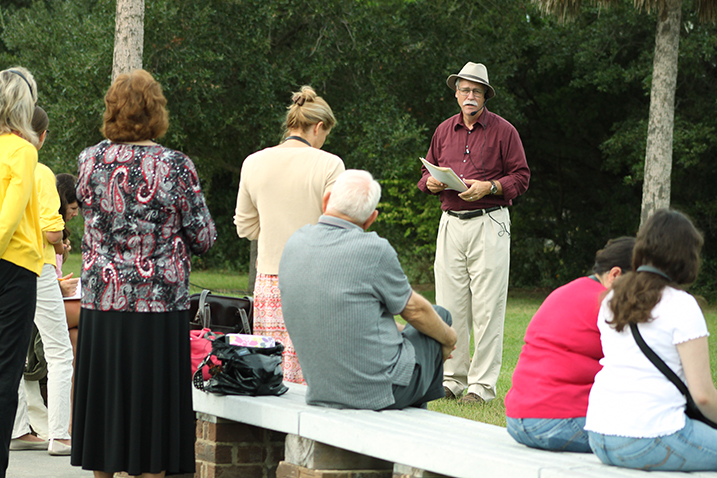
Bill Potter Tells the Remarkable Story of William Moultrie Outside the Fort Bearing Moultrie’s Name
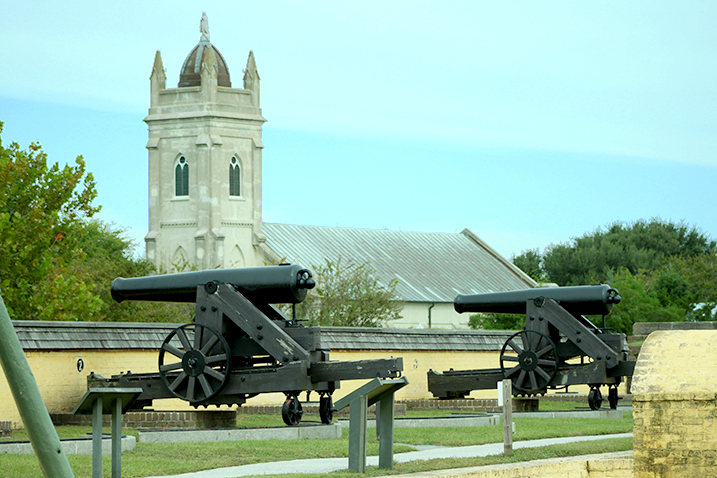
Fort Moultrie, built in 1776, served as a coastal defense for 171 years until 1947.
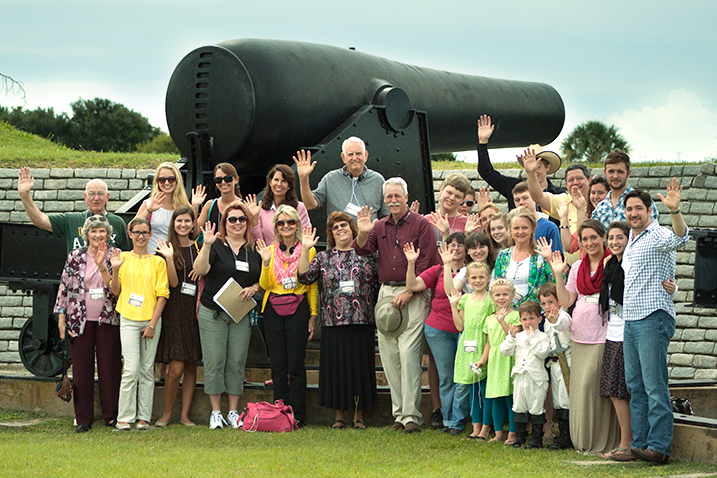
Wish You Were Here!
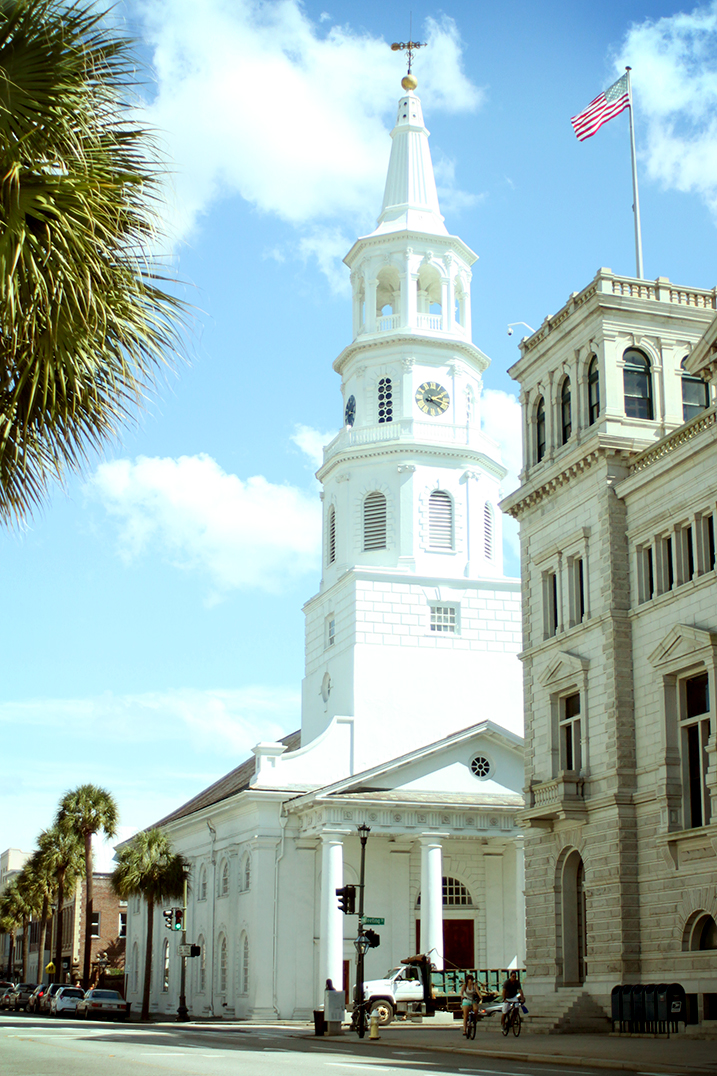
St. Michael’s Church where Charles Cotesworth Pinckney and John Rutledge, Signers of the Constitution, are Buried
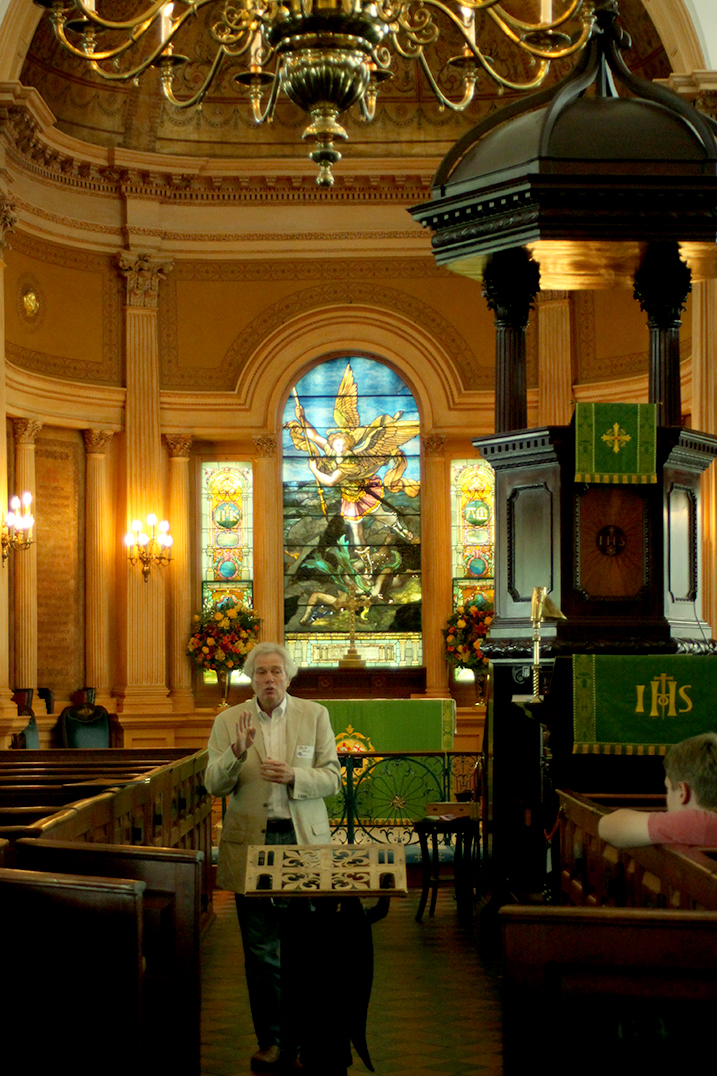
St. Michael’s Church Staff Gives a Very Interesting Overview of the Church’s History
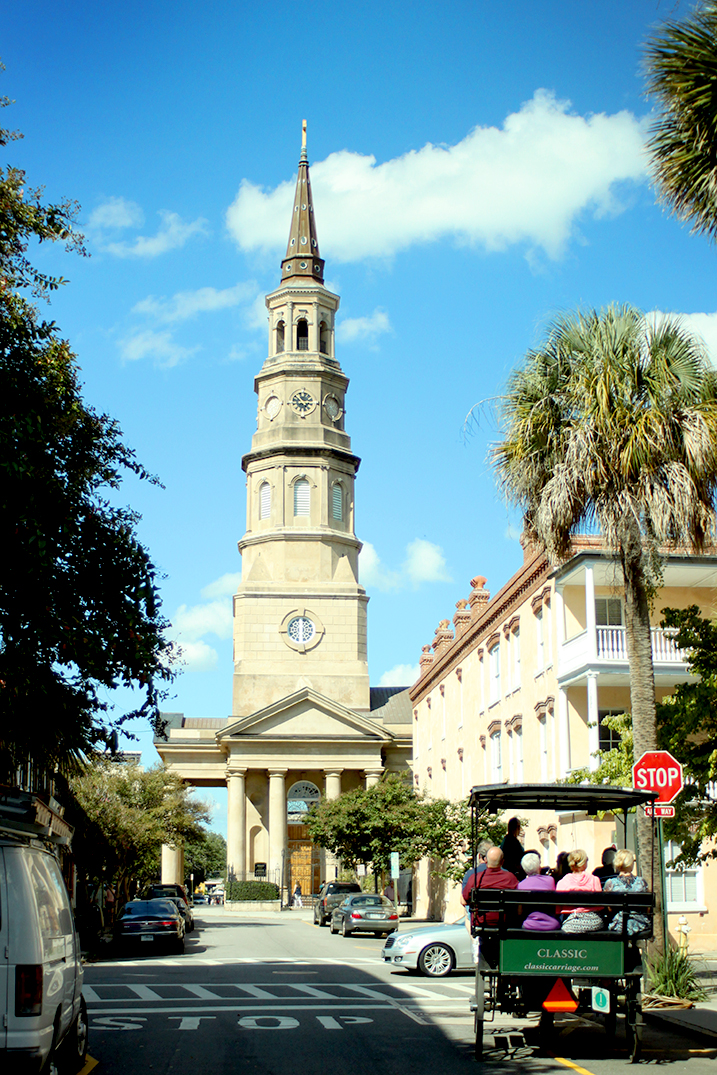
St. Philip’s Church where Charles Pinckney, Another Signer of the Constitution, is Buried
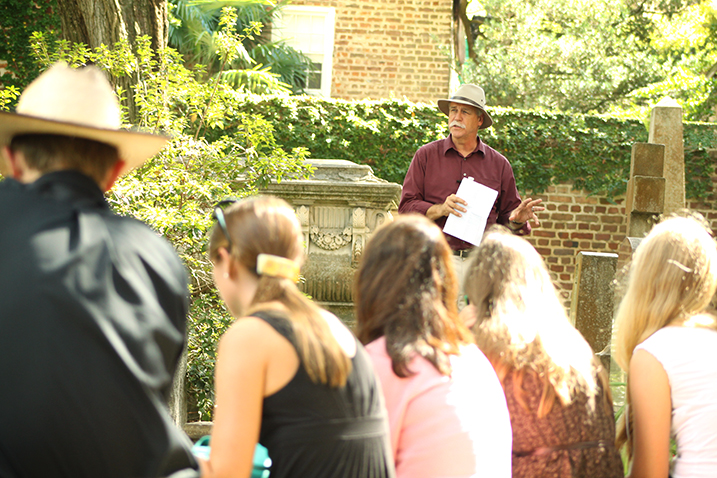
Bill Potter at St. Philip’s Church Graveyard
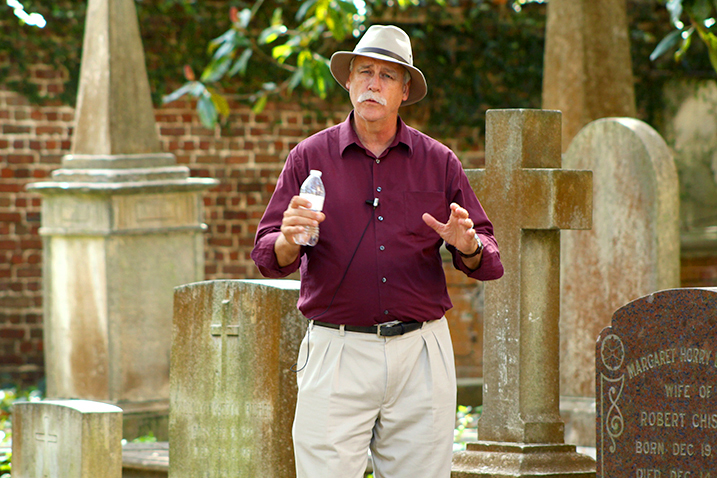
Bill Potter at St. Philip’s Church Graveyard
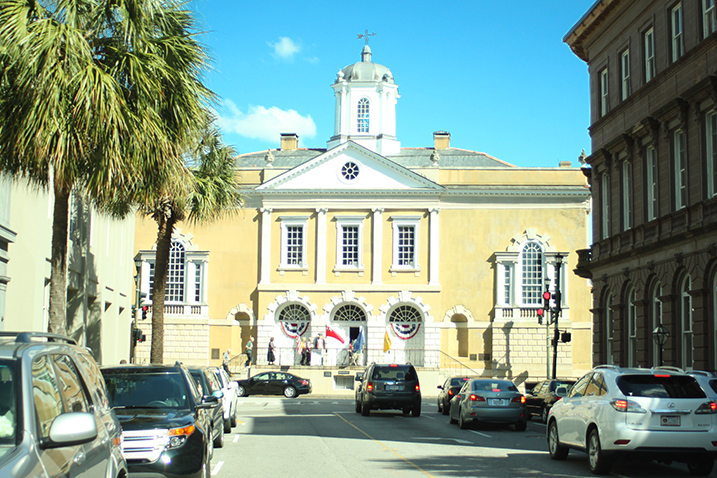
The Old Exchange and Provost Dungeon Building is now an interesting Museum with a fascinating past!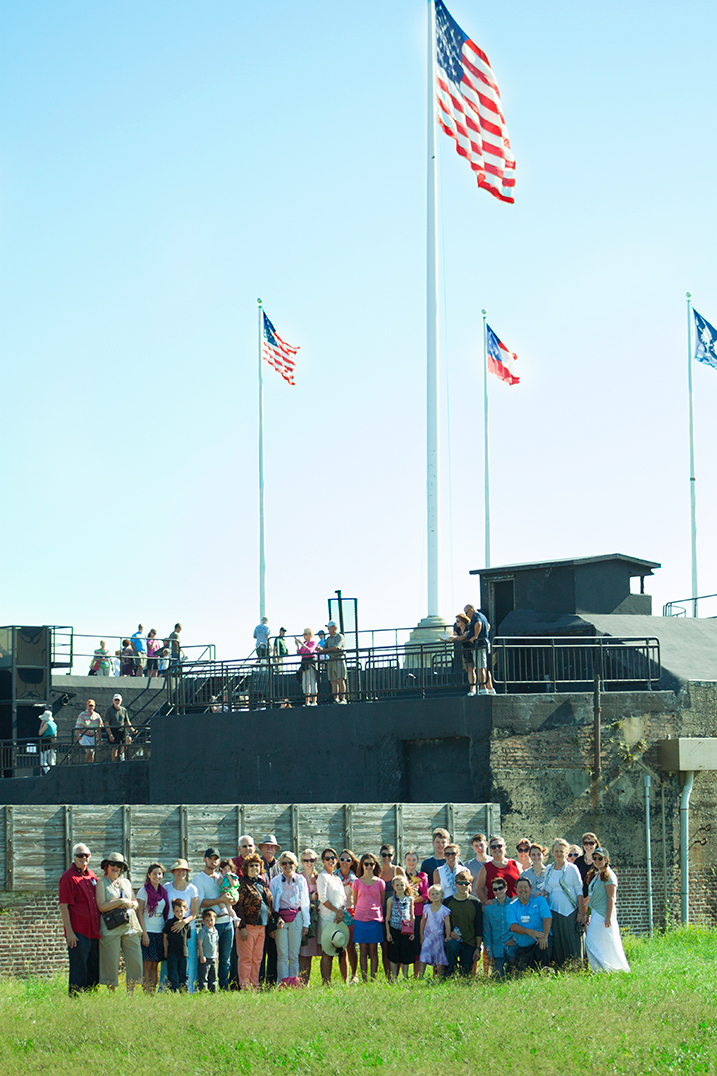
Tour Attendees at Fort Sumter
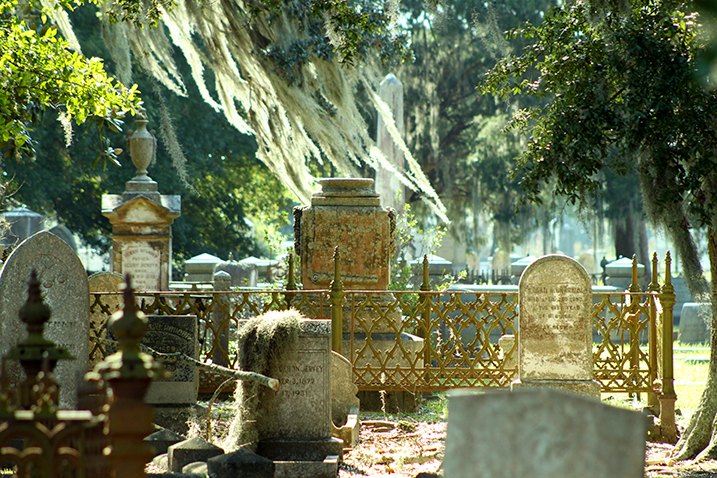
Magnolia Cemetery, Final Resting Place of all Three Crews of the Submarine Hunley
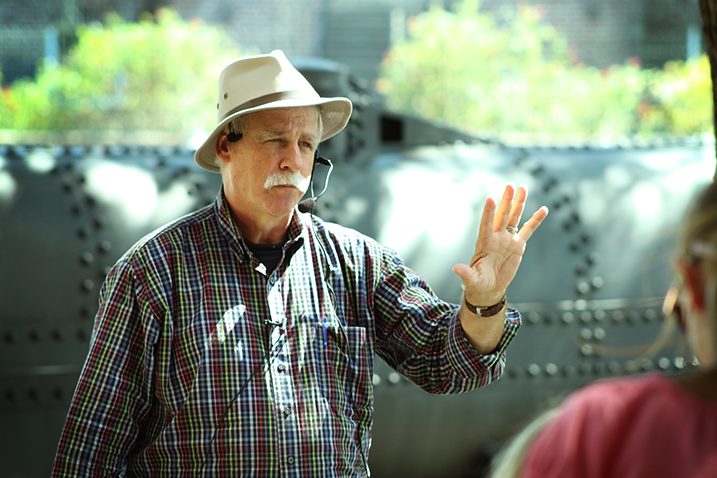
Bill Potter Recounts the Exploits of the H.L Hunley

Tour Attendees Listen to Landmark Events Historian Bill Potter
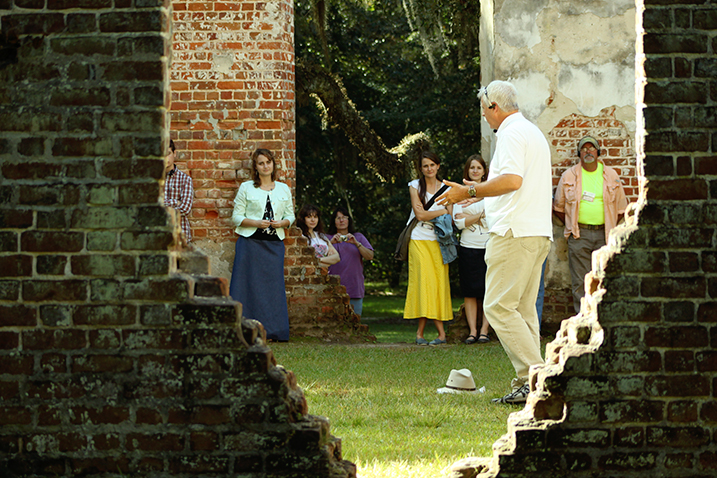
Inside the Ruins of Old Sheldon Church – burned by the British in 1779 and again in 1865 by Union General Sherman
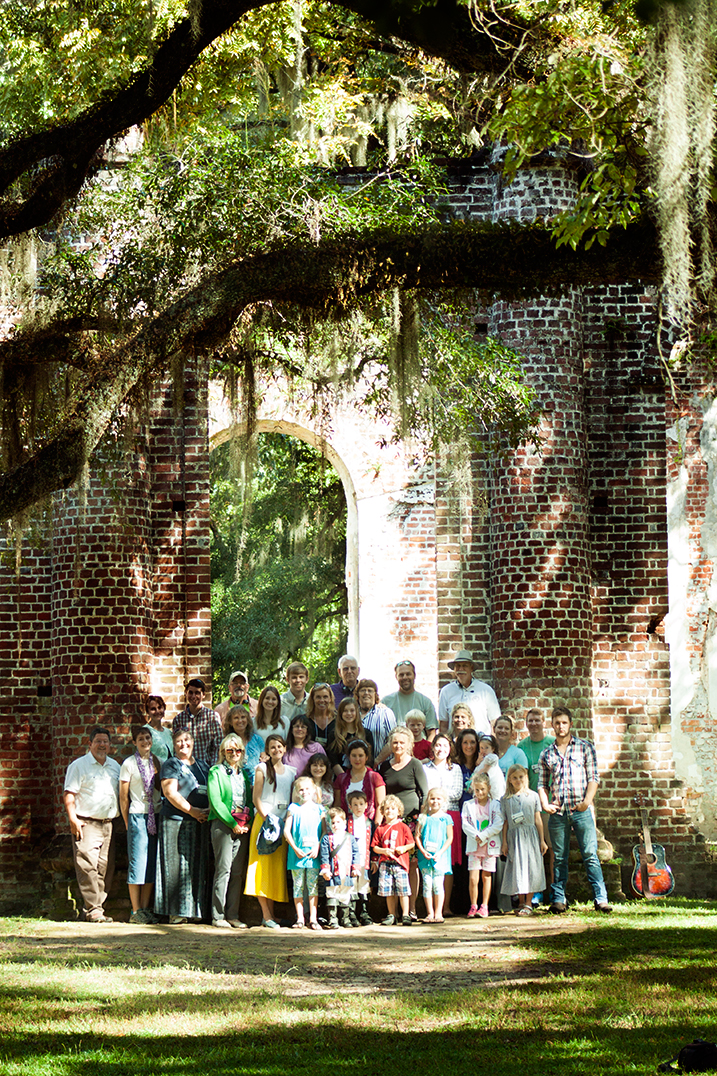
Tour Attendees Stand Outside the Ruins of Old Sheldon Church

Samuel Turley Brings Music to the Ruins of Old Sheldon Church
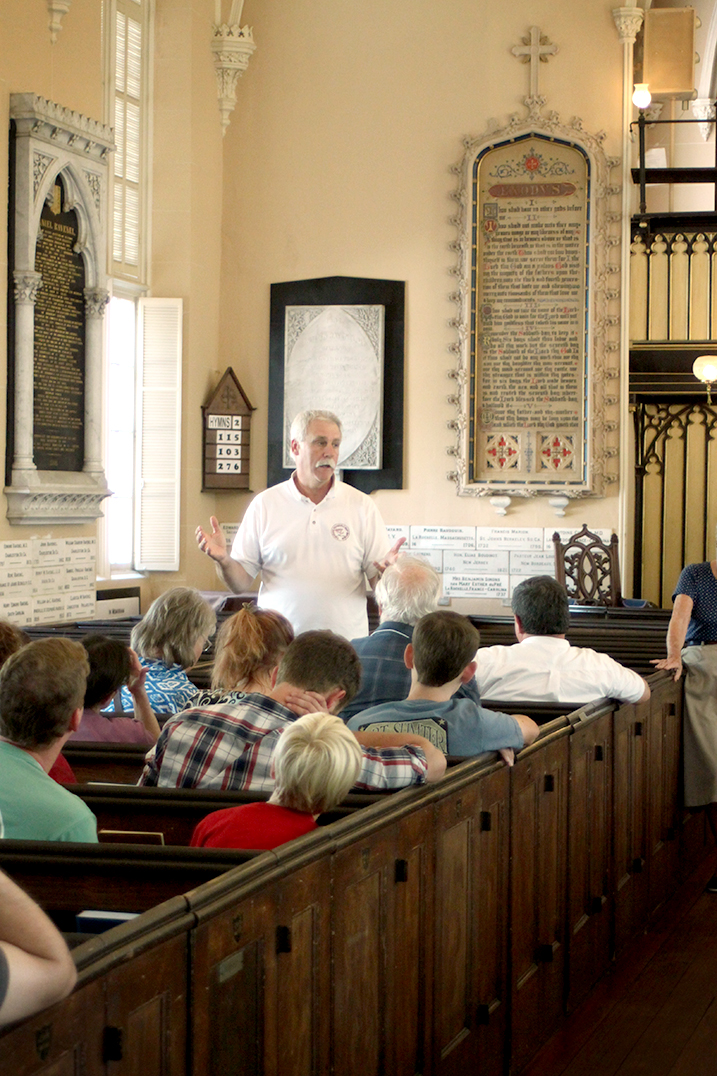
The Huguenot Church in Charleston, the sole French Huguenot church in the United States
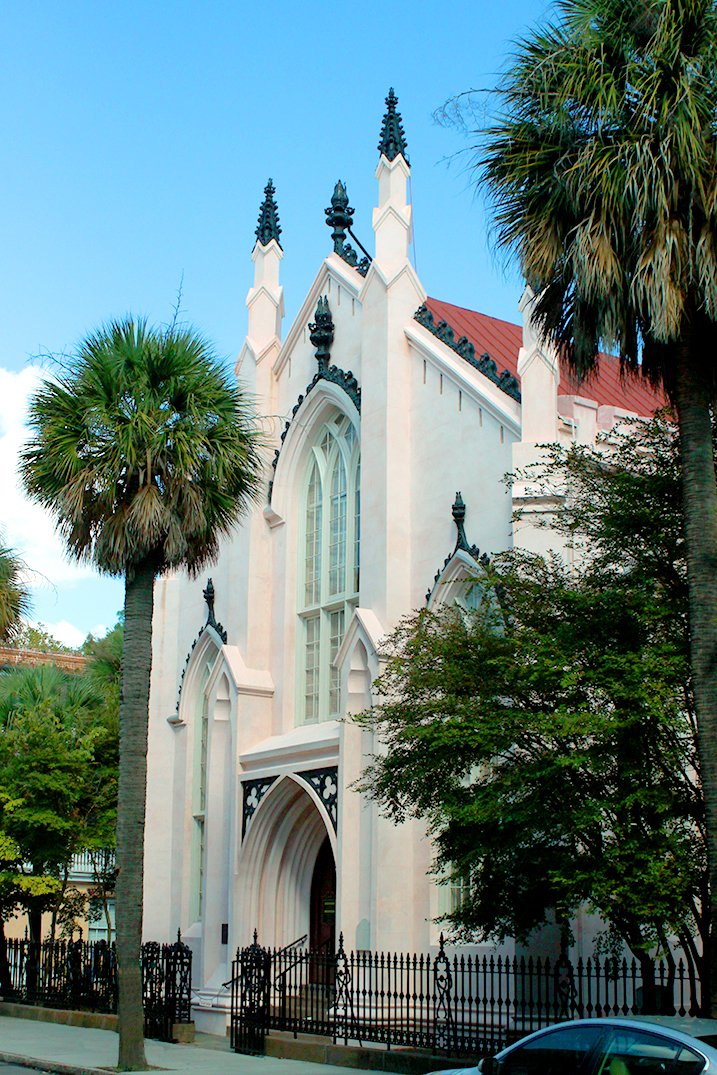
The Huguenot Church in Charleston traces its roots back to 1680.
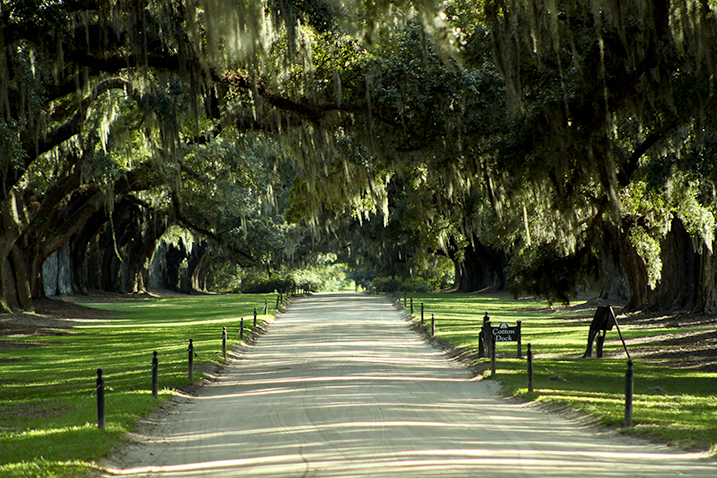
Avenue of Oaks at Boone Hall Plantation
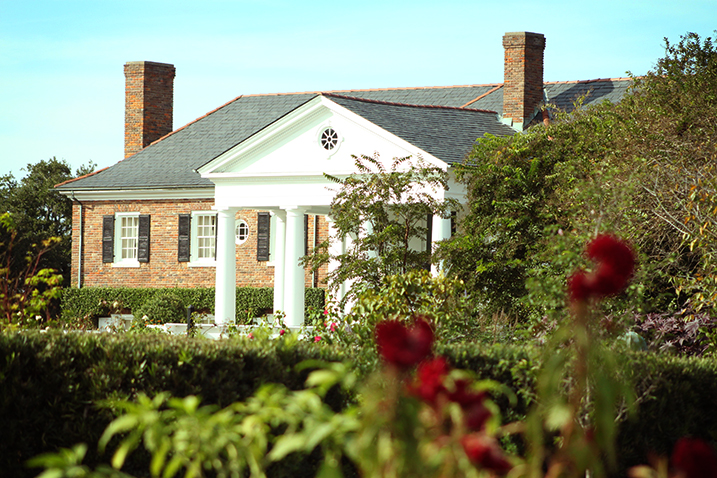
The Boone Hall Plantation and Gardens
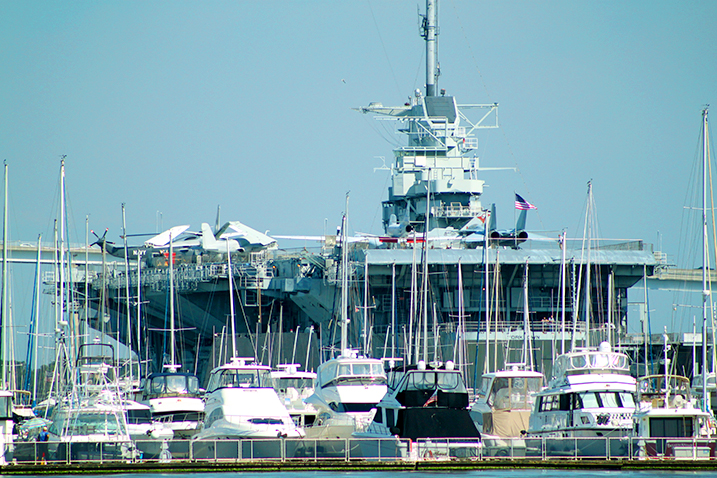
Aircraft Carrier U.S.S. Yorktown at the Tours Final Stop – Patriot’s Point






